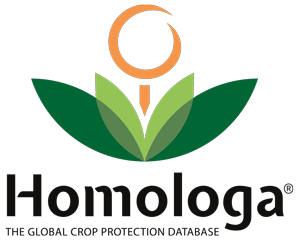Beans as a crop, is probably one of the most complex groups at the global level. Currently, Beans are used in many ways in different parts of the world and therefore, registrations vary drastically among countries: roasted beans could be eaten as a snack in North America, French beans could make a good appetizer in Europe, Adzuki beans are used as an ingredient in ice-creams in Asia, and in some parts of Africa and India beans could be considered a staple food.
Additionally, depending on the country, some bean varieties are eaten with pods, some others are cooked with pods and then these are discarded when being eaten, some others are shelled, dried, and then cooked, some varieties are used as a forage. The importance of beans globally as a crop and the complexity of its consumption definition, are out of question.
Furthermore, focusing on human nutrition and depending on the part(s) of the plant consumed and the samples analysed, Maximum Residue Limits (MRLs) of pesticides, vary substantially. For example, Adzuki beans are mostly eaten in the US after being dried and thus, Adzuki beans samples tested for MRLs in the US, are just the dried seeds. Conversely, Runner beans are sold to the end user as succulent pods, hence Runner beans samples tested in the US for MRLs are then, succulent seeds with pods.
Notwithstanding, some types of beans such as Broad beans can be sold either succulent or after being dried. When a farmer grows Broad beans and depending on how those beans are going to be sold (succulent or dried), both crop management and MRLs change. For instance, on the one hand, the acaricide Fenpyroximate has a 0.4 ppm tolerance in succulent Broad beans. Whereas on the other hand, there is a zero tolerance of Fenpyroximate on dried Broad beans. Thus, a farmer growing Broad beans that are going to be sold dried, must not use Fenpyroximate otherwise, any residue of that substance in them could lead to a non-compliance issue. Therefore, the concept of “purpose” becomes necessary.
Homologa® contains a vast list of registered plant protection products (PPP) used for beans in more than 90 countries. In addition, regarding beans, Homologa® implements three different attributes to help to better understand their purpose:
- With-pods-fresh (AKA succulent with pods)
- Excluding-pods-fresh (AKA succulent shelled/fresh)
- Dried
To sum all up, crop attributes are key in MRLs compliance. Farmers must consider both MRLs and destination beforehand to avoid any potential rejection of their crops. Having the most accurate information about usage is the best way to plan in advance and to make sure that values at harvest fulfil all market requirements. Homologa®, allows not only farmers but all food chain stakeholders, to make precise data-driven decisions.
Please visit Homologa® for further information or contact us.

